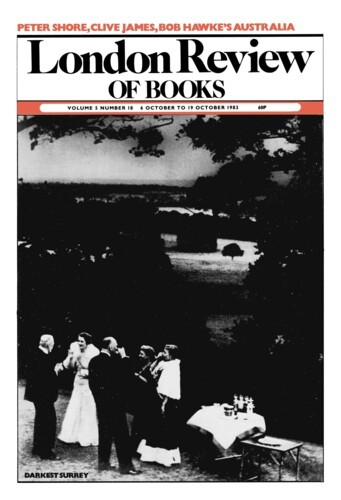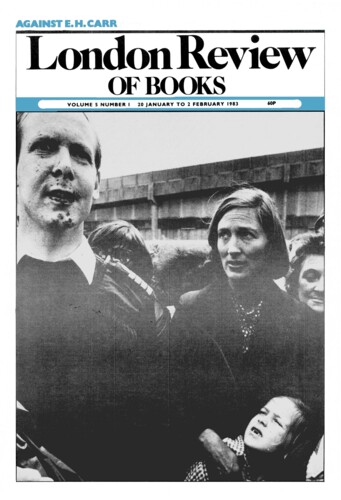Jewish Liberation
David Katz, 6 October 1983
One of the greatest ideological achievements of Nazism was the successful promotion of the image of the Jew who was simultaneously a heartless capitalist and a revolutionary communist. Certainly a people which produced both Rothschild and Trotsky, as well as many lesser men in their image, might find themselves objects of virulent hatred from both left and right. Jewish economic achievements and championship of social change are undoubtedly a source of pride in the Jewish community, but when under attack these features of Jewish life are often stowed below as so much embarrassing luggage which ought not to be seen outside the family circle, and replaced with a roll-call of Jewish heroes in the arts and sciences. The undeniable fact that a people of whom there are no more than 15 million throughout the world should have had an influence in nearly all fields of human endeavour quite out of proportion with this demographic strength has been a constant source of worry for many Jewish communities in Europe, but perhaps nowhere more so than in England. The influence exerted by Anglo-Jewry in business and at the polls has been a particularly sensitive issue. Indeed, Geoffrey Alderman notes the opposition and personal abuse which he suffered during the research and writing of his book on the Jewish vote in Britain from the leaders of Anglo-Jewry, who thought it best to ‘tell it not in Gath, publish it not in the streets of Askelon’.


